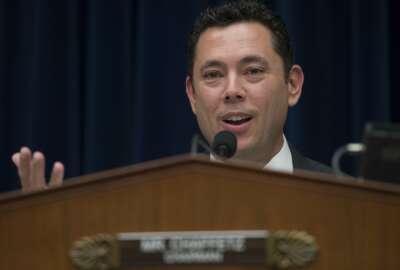- The General Services Administration failed to comply with the Improper Payment Acts in fiscal 2016. The agency’s inspector general’s recent audit found GSA did comply with five of the six requirements of the acts, but it did not meet its improper payment reduction goals for its Rental of Space Program. It also said GSA’s Office of the Chief Financial Officer’s reporting of improper payments were neither accurate or complete. (General Services Administration Office of Inspector General)
- Health and Human Services Secretary Tom Price wants his employees to help him “reimagine HHS” as the department thinks about how it will reorganize. Price told HHS employees he doesn’t view the reorganization as a budgetary exercise and said he’s not “gunning” for any programs or agencies. Steering committees with political appointees and career employees will lead reorganization work. (Federal News Radio)
- Some lawmakers want the Office of Personnel Management to improve the hiring process for cybersecurity positions. Members of the New Democrat Coalition wrote to Acting OPM Director Kathleen McGettigan, suggesting OPM specifically authorize agencies to offer cyber certification testing. They also said OPM should consider loosening up the requirements for cybersecurity positions and look to the private sector for ideas. (New Democrat Coalition)
- A 2008 cyber initiative isn’t keeping up with modern technology. Cloud computing is disrupting more than just the way agencies deliver services. It’s also causing agencies to rethink their approach to cybersecurity. The Office of Management and Budget said the Trusted Internet Connection or TIC initiative is causing additional complexities with cloud migrations and integrations. OMB said it plans to look at the TIC architecture to figure out how best to address performance and transaction issues. The goal is to make public facing services operate more efficiently while still protecting data and systems. (Inside Defense)
- President Donald Trump has a management challenge very close to home. Under his own roof as a matter of fact, with the departure of White House chief usher Angella Reid. She had been on the job since 2011. Published reports say she was fired. The chief usher is responsible for operation of the White House, with a staff of nearly 100 people working inside and on the grounds. Chief ushers serve at the pleasure of the President. (Associated Press)
- Chief of Naval Personnel Vice Adm. Robert Burke said the military branch wants to modernize its performance evaluation system. Burke said while NAVFIT 98 has worked for many years, naval leaders believe its time to take a new approach. The Navy wants to test a conceptual prototype platform later this fall while continuing to use the existing system that was put in place back in 1996. (Navy)
- The head of a major contractor said the slow pace in which the Trump administration is appointing Pentagon leaders is slowing the procurement process. Inside Defense reports Roger Krone, CEO of Leidos, told analysts during a earnings call that the company has seen a “delay in the procurement process award decisions.” Krone said the Defense Department has only one confirmed person and that’s Secretary of Defense James Mattis. He said other agencies are in a similar position and budget uncertainty is partially to blame for the slowdown as well. (Inside Defense)
- As part of a Small Business Administration competition to help veterans learn the ropes of federal procurement, $2 million in funding is up for grabs. The competition is geared toward American organizations who want to expand existing programs that help veteran-owned small businesses compete for government contracts. Applications for the competition are due by June 8. (Small Business Administration)
- Lack of quality time for family is one of the biggest problems military personnel face, the authors of a Bipartisan Policy Center study told the Senate Armed Services Committee. They said if the U.S. military wants to compete in the 21st century it needs to improve its personnel system, childcare and benefits for spouses. (Federal News Radio)
Copyright
© 2024 Federal News Network. All rights reserved. This website is not intended for users located within the European Economic Area.

